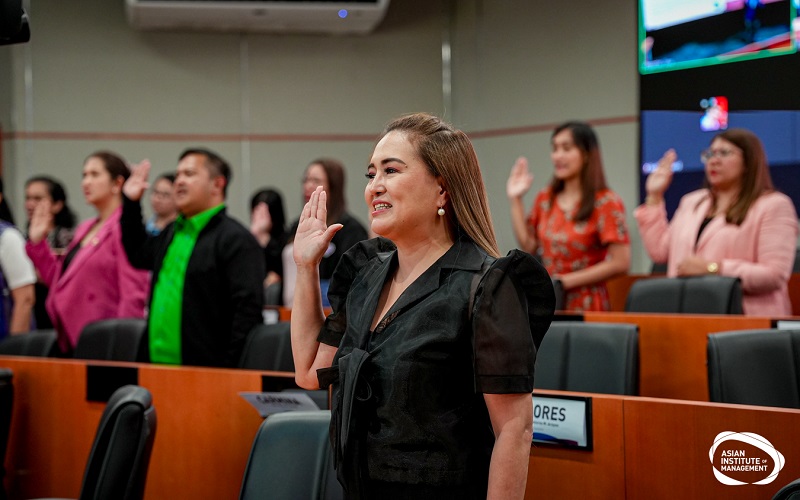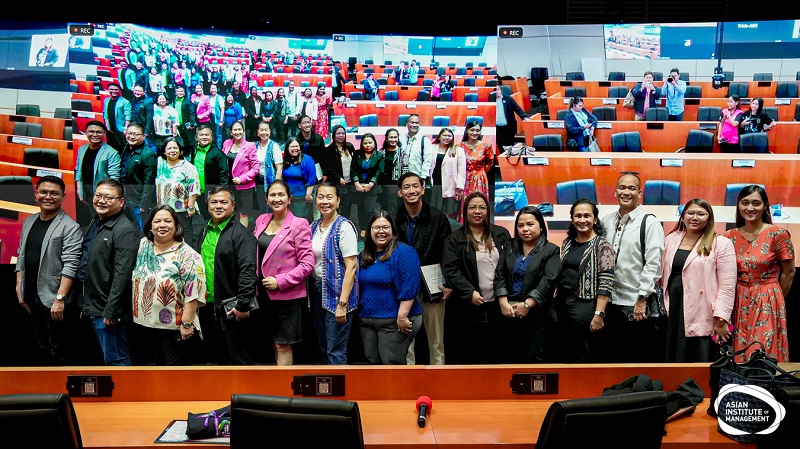
MAKATI, Philippines – The Asian Institute of Management School of Executive Education and Lifelong Learning (AIM-SEELL), in collaboration with the Local Government Unit of the City of Makati and City Councilors, recently celebrated the successful completion of the Legislation on Climate Action and Sustainability Leadership Program. This initiative, tailored to equip city councilors with the knowledge and skills to address climate change through impactful legislation, marked a vital step in strengthening Makati’s commitment to sustainability.
The two-phase program began with a four-day in-school training at AIM, featuring lectures, case studies, and workshops. The second phase expanded the learning experience beyond the classroom through international benchmarking tours. The group was divided into two, with leaders visiting either Seoul, South Korea, or Brampton, Canada. These cities, known for their innovative approaches to climate action, offered a rich backdrop for observing successful sustainability initiatives in action.
During the graduation ceremony, Makati City councilors shared insights from their benchmarking experiences They highlighted how South Korea’s use of technology advanced its climate change efforts and balanced modern development with cultural preservation. The delegation visited organizations in Seoul, including CityNet, where they learned about disaster management, climate adaptation, and sustainable development.
Brampton’s approach showcased policies like the Community Energy and Emission Reduction Plan and electric buses, key steps in cutting carbon emissions. The group also visited the Innovation District, where clean tech entrepreneurs lead sectors like biotechnology and cybersecurity, and noted potential benefits for Makati in adopting similar initiatives.
The delegations returned to Makati armed with a series of actionable recommendations. Among them were the adoption of solar panels in schools, the promotion of electric vehicles, and the integration of cybersecurity infrastructure to future-proof the city. The presentation also stressed the importance of private sector involvement in sustainability, with a call to transition from traditional corporate social responsibility (CSR) to more comprehensive Environmental, Social, and Governance (ESG) reporting. The councilors proposed incentivizing voluntary ESG reporting from Makati’s businesses, especially around greenhouse gas emissions. This could serve as a proactive measure to ensure that Makati’s thriving business sector—the richest in the Philippines—plays an active role in sustainability efforts.

As the program concluded, the delegates exhibited broadened perspectives and were empowered with a deeper understanding of the global climate landscape, and the concrete actions necessary legislative interventions to create lasting change. The lessons learned from this program have sparked a transformative shift, positioning Makati as a city capable of leading the way in sustainability and ensuring that future generations inherit a city that is not only prepared for the challenges of tomorrow but also thrives in them.